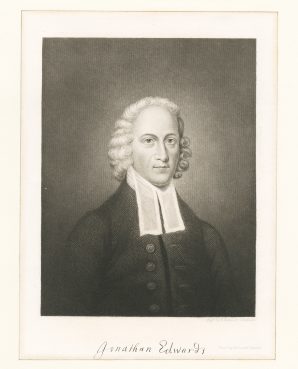(RNS) — My earliest memory of Jesus is as a Sunday college flannelgraph reduce-out. i can't tell you how ancient i was on the time, but I bear in mind Jesus resembled the version described with the aid of former Fox information host Megyn Kelly as "a white man … as is Santa," except he wore a light blue robe with a burgundy sash.
There I sat, crisscross applesauce, in a crescent moon of alternative impressionable children, watching Jesus slide across the fuzzy board, working miracles and reminding americans to like their neighbors as themselves.
My trainer's descriptions of Jesus were as flat because the cutout itself. Jesus became good, Jesus turned into God and Jesus loves me this i know, for the Bible tells me so.
>linked: Why is a photo of Jared Leto dressed like the Joker and Jesus floating round?
It wasn't a whole lot suggestions, however became sufficient to spark an activity that persisted into early life. Over time, a third dimension become delivered to my two-dimensional image from without delay encountering Jesus in my existence. These lived experiences have stored me walking the so-referred to as Jesus means for the last quarter-century.

Diana Butler Bass. Courtesy photograph
faith scholar Diana Butler Bass, sixty two, additionally discovered about Jesus through both Sunday college and seminary. while she discovered these experiences beneficial and even lifestyles-giving, she too came to conclude they have been not satisfactory. In her new publication, "releasing Jesus," Bass writes, "neither historical scholarship nor standard doctrine somewhat captures who Jesus is for me."
the former, Bass writes, commonly leads to cold skepticism. The latter results in dutiful submissiveness. The only way to add a third dimension to our figuring out of Jesus is to offer our distinct personal experiences a seat at the desk of figuring out.
In a cellphone interview, Bass informed me she believes contemporary Jesus followers should untether the primary-century Nazarene from limiting constraints imposed through theological systems, notably the boundary-holding non secular correct, as neatly because the accretions of rituals in liturgical traditions. simplest then will we liberate what she calls "The Jesus Christ of private adventure."
in case you hail from a fundamentalist or evangelical Christian culture like me, that phrasing may get your hackles up. at the same time as my lived experiences have been proposing depth and colour to my knowing of Jesus, my evangelical upbringing changed into instructing me that very own adventure could not be trusted. religious fact is absolute, aim, ordinary and revealed handiest by means of God's notice — a truncated way of announcing that truth become restrained to my leaders' sanctioned interpretations of the Bible.
Over time, I came to peer the serious flaws in this. there is a difference between realizing Jesus and realizing about Jesus, and a lot of Christians who agree with they have got the market cornered on the former by no means challenge to trust the latter.
"If we suppose that being with Jesus capacity getting the correct solutions from a creed or remembering points of doctrine from a sermon, we doubtless will now not be capable of really be aware of Jesus," Bass says. "we will most effective be triumphant in maintaining the appropriate responses scribbled on some returned page of our reminiscence."
Her point of view reminds me of a 1996 Christianity nowadays article via the famed preacher and United Methodist bishop William Willimon. at the time, many conservative Christians have been "decrying rampant ethical and highbrow 'relativism' inside our tradition." Willimon, whereas calling the idea of absolute actuality "a necessary corrective," asserted that "Jesus did not arrive among us enunciating a set of propositions that we are to affirm."
Christian faith need to be grounded in a private experience, not a propositional education. "Isn't it curious that Jesus did not say to his disciples, 'i am right here to tell you about the fact?' He says, 'i am the fact,'" Willimon wrote.
This debate predates Willimon via at least 500 years. As Bass features out, those that introduced concerning the Protestant Reformation vehemently puzzled each church lifestyle and subjective adventure, which they believed dethroned the Bible in the Christian mind.
In response, Christian pietists in the 1600s warned that the Reformation became resulting in a frigid intellectualism. First fantastic Awakening preachers such as George Whitefield argued that there should be an experiential dimension to faith.

"freeing Jesus" by means of Diana Butler Bass. Courtesy photo
In recent years, Bass has been influenced by philosophers who argue that the nature of all human knowledge is not best cognitive however deeply experiential. "We no longer suppose about fact simply as records, however as something that adjudicates itself via our lives," Bass instructed me. "i know anything is right since it rings actual in me, and we are aware of it's authentic since it rings actual in others. And this goes for our understandings of Jesus too."
Bass' publication doesn't stop at describing her procedure: It describes the six distinctive methods Jesus has manifested in her lifestyles — as buddy, instructor, Savior, Lord, way and Presence. "Your six Jesuses may well be different, or they can be the identical however in a different order. perhaps you have got favourite eight or ten Jesuses," writes Bass. "Or maybe you've got simplest commonly used one and are looking to know that Jesus extra deeply or anew."
it may well sound slippery and subjective to a few, but Bass' approach falls in accordance with the way Christians have encountered Jesus via heritage.
In 1985, Jaroslav Pelikan, then-professor of Christian history at Yale institution, posted "Jesus through the Centuries," in which he mapped out the distinctive portrayals of Jesus from the first century in the course of the 20th.
There turned into Jesus because the "King of Kings," a magnificent rebuttal to the Roman caesars' declare to lordship, and later, a chance for Emperor Constantine to fuse church and state.
The eighth and ninth centuries' depiction of Jesus as "The actual picture" impressed an explosion of Byzantine paintings and architecture. by means of the core a long time, the dominant image had develop into "Christ Crucified." The twelfth-century Benedictines portrayed Jesus as "The Monk Who guidelines the realm," while Christians of colour all over the civil rights stream chose to observe Jesus "the Liberator."
Pelikan lays out 18 portrayals of Jesus in all, demonstrating how Christians have always understood Jesus in ways in which "represented a solution" to the primary questions of their specific lives.
None of them are false. fairly, every crystallizes or emphasizes elements of the reputedly depthless total of who Jesus is. each and every portrayal represents a means of understanding Jesus, but now not the style. And whereas evangelicals can also hope otherwise, the fact is, Christians all through background are inclined to locate and follow the edition of Jesus they most need. This could be one of the crucial secrets to Christianity's endurance — a theological feature, not a trojan horse.
nowadays, some pictures of Jesus are naturally incompatible with others. What happens when the Rev. William Barber's "Jesus of justice" collides with the Jesus marketed with the aid of white supremacists on the Jan. 6 Capitol revolt? with out an aim commonplace, how does one check which edition of Jesus is right, truer or truest?
>related: Who would you choose, Jesus or the Spirit?
when I put this conundrum to Bass, she replied like a real spiritual historian: She referred to Jonathan Edwards. within the middle of the primary incredible Awakening, she stated, Edwards become asked how someone can figure if a spiritual experience became first rate and wouldn't result in something evil.

Jonathan Edwards. picture from the ny Public Library/Public domain
"Edwards wrote an extended tract on this topic, and it's one of the most wisest answers in church historical past: the way you adjudicate a religious journey is by way of its results. nowadays, we are seeing the consequences of the white supremacist Jesus and even the Southern Baptist Jesus," Bass says. "they can say that their Jesus is more suitable than everybody else's, but when the effects are sex abuse scandals and violent insurrections and white supremacy, the answer is fairly evident."
Edwards' reply doesn't sound too distinct from Jesus' test for false academics: "you're going to understand them by means of their fruits. … each decent tree bears decent fruit, but a nasty tree bears dangerous fruit." And yet, while "fruit testing" can be positive, it also has its limits. The results that one adult calls good, one more might also trust rotten.
Bass is not arguing for a in basic terms subjective approach to realizing Jesus. She has no longer checked her scholarship at the door. quite, she models a system she dubs "mutual interrogation," during which own journey is placed into conversation with biblical scholarship, church lifestyle, historical past, science and intent. Bass offers experience a seat on the desk of figuring out, perhaps even at the head, but it isn't the only voice in the room.
"There are pitfalls to living in a purely experiential world," Bass says. "QAnon conspiracy theorists exhibit us that. in case you flow toward a universe that exists handiest in the realm of what you believe and experience to be actual, that's now not going to work well. experience is a grounding thing, but it surely may still be allowed to coexist alongside and have interaction with other modes of understanding. Out of that, some thing proper emerges."
in the conclusion, all Christians run headfirst into that durable question that Jesus first requested his disciples: "Who do you say that i'm?" The reply to that question can not be explained by using a Sunday school instructor, imparted from a mentor, inherited from an ancestor, borrowed from a ebook, codified in a creed, jotted on a flashcard or memorized like a math equation. it could possibly only be excavated from the soil of a as soon as-lived human lifestyles.
That's been my experience, anyway.



No comments:
Post a Comment